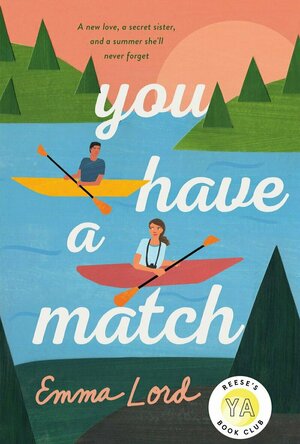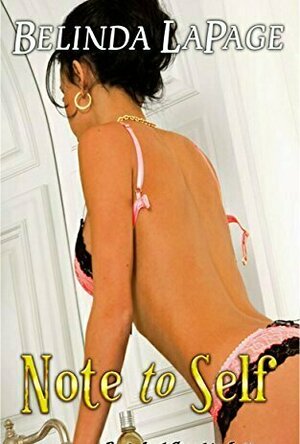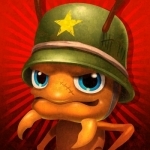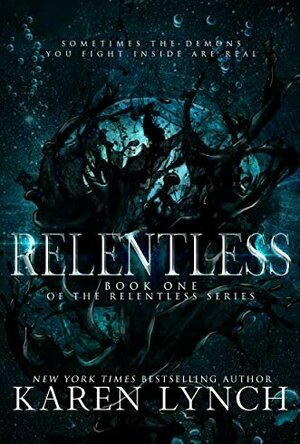Kristy H (1252 KP) rated You Have a Match in Books
Jan 28, 2021
"Normal isn't having a big, stupid, ridiculous crush on one of my best friends, especially when he most certainly doesn't have one on me."
So, this is a good book, but I have to admit that I was disappointed because it wasn't the same as TWEET CUTE. I absolutely loved that YA romance, and while this is an interesting read, it just didn't have the romantic twang of TWEET CUTE. It's probably not fair to compare the two, but I couldn't help it. MATCH focuses less on romantic chemistry and more on Abby finding her way/coming of age and meeting Savvy, her "new" sister.
I actually liked the sister piece overall. The DNA twist is different (rarely do we get full siblings!) and there's also a nice LGBTQIA relationship thrown in. But, I never felt like Abby and Leo's relationship fully gelled. It just didn't feel as fun and flirty as I wanted. And, much of the book's plot is propelled by misunderstandings. At some point, it got to be too much: if some characters had just spoken up, so much could have been avoided! There's so much going on--the sister aspect, romance, secrets, etc. At times, it feels like the plot is struggling to contain them all.
Still, there's a lot to enjoy about this story. Don't get me wrong at all. The camp setting is a lot of fun, and Abby and Savvy are both great characters. Watching Abby develop is rewarding, and there are plenty of humorous and tender scenes as the sisters get to know each other. Even though MATCH didn't meet my TWEET CUTE expectations, it's an enjoyable read. (I judge romances on whether I'll get a copy for my SIL and this one passes the test.) 3.5 stars.
Kara Skinner (332 KP) rated Note to Self in Books
Sep 10, 2019
Goodreads rating: 3.73 out of 5 stars
My rating: 3.5 out of 5 stars
Anna never considered herself bisexual or a lesbian. She’s totally in love with her husband and happy with her life as a wife, mother, and cop. But that all changes when she meets Susan, a pretty, feminine doctor, who turns Anna’s world upside down. Confused and full of guilt from thinking erotic thoughts about Susan while married to Nick, Anna turns to her journal to sort it all out.
Okay, once this story gets going, it’s great. But in the beginning it is so damn boring. Journal or not, Anna does not get to the frigging point for like four or five pages! I was tempted to go wash the dishes at least twice in the beginning of the book. When the dishes are pulling me away from a book, and not the other way around, something is very wrong.
However, it does read like a real diary, so kudos on that.
Once Anna gets her shit together and actually starts telling what happened, the story gets a lot better. Her inner turmoil is relatable and realistic and makes me like her alot. Susan’s character is also great. Being very girly, Susan has a nice contrast with Anna, and that makes their time together that much sweeter. I always love it when characters are developed, even for short erotica pieces like this one.
I do have a problem with Anna being married, though. Her husband is a great guy who is very supportive of her and their son. He showed up to their son’s kindergarten barbecue, doesn’t mind his wife being “one of the guys”, and doesn’t even get jealous from other men’s stares at her.
It’s really clear that they are still very much in love and unless it becomes clear in the sequel that he’s a serial cheater or hiding huge secrets, (like, “I killed my boss and embezzled five million dollars” type of secret. Not “that purple dress really did make you look like Barney and I didn’t tell you even though I knew pictures were going on Facebook” type of secret) then I’m never going to like Anna’s and Susan’s relationship as much as I could.
Lesbian relationship? No problem. More power to ya. Cheating on a very sweet person? Huge problem. Shouldn’t happen. Burn in hell.
You can read Note to Self on Smashwords for free. I recommend you check it out if it sounds like your cup of tea. Speaking of tea, take some time to read with a cup of it. The holidays are coming up, and you need some relaxation before your life dissolves into chaos. Take care!

Turkcell TV+
Entertainment
App
TV+ ile en sevdiğiniz TV kanallarını izleyin, kaçırdığınız ya da yeniden izlemek...

Halkbank Mobil
Finance and Business
App
Mobil Bankacılık hiç bu kadar keyifli ve kullanıcı dostu olmamıştı! A’dan Z’ye...

Hamilelik Rehberi
Health & Fitness and Lifestyle
App
Türkiye’nin en çok kullanılan uygulamasına hamilelik rehberine hoşgeldiniz. Gebelik...

TV+ for iPad
Entertainment
App
TV+ ile en sevdiğiniz TV kanallarını izleyin, kaçırdığınız ya da yeniden izlemek...

Traductor de viaje
Travel and Reference
App
Oferta especial, sólo por tiempo limitado. Precio 4,99 € en vez de 8,99 € Convierta el iPhone...
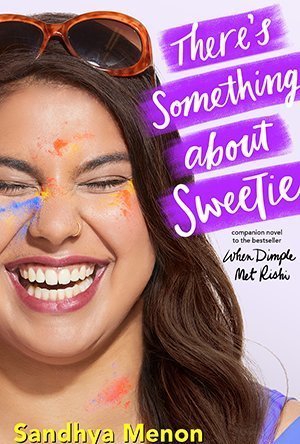
There's Something About Sweetie
Book
The irresistible companion novel to the New York Times bestseller When Dimple Met Rishi, which...
Merissa (13770 KP) rated Relentless (Relentless, #1) in Books
Jun 8, 2023
This story is simply fantastic. It is fresh and incredibly well-written. There aren't many books out there that can blend fantasy with paranormal but Karen Lynch can and does with aplomb. The synopsis states that vampires are involved so fair enough but I certainly wasn't expecting trolls, imps, sylphs, undines and demons - to name but a few! There are enough characters in here so that everyone can have their favourite although I suspect I'm in the majority for thinking that Nikolas is just "Oh Yeah!". The relationships between Sara and her two best friends, Roland and Peter, are not only believable but also in the minority in books. Yes, people, you can be friends with a guy without any benefits apart from a solid friendship. It was so nice to read this part even with the explanation given by Aine as to the why.
Sara has special gifts, some of which can be explained by Nikolas and some that remain a mystery. Sara states that she is not a warrior. Warriors come in different shapes and sizes but Sara definitely is. She has much to learn and I'm really hoping that Nikolas will be there to help her.
Relentless is full of secrets which I loved reading about, it is also full of humour. Sara is a strong female lead and she is not afraid of speaking her mind, especially to Nikolas. One of my favourite parts is when she speaks to Nikolas on the phone and calls Chris "Dimples". It may not be funny here but read the story and you'll see what I mean.
This is book 1 of a trilogy with book 2 (hopefully) due out late this year. I am now stalking, I mean, following 😉 Karen Lynch on Facebook and GoodReads so that I can see it as soon as it's available. Good things come to those that wait and if this book is any indication, book 2 is going to be even better. So many things that I want to see happen. Definitely recommended for anyone who likes YA, Fantasy or Paranormal. Excellent!
* A copy of this book was provided to me with no requirements for a review. I voluntarily read this book, and the comments here are my honest opinion. *
Merissa
Archaeolibrarian - I Dig Good Books!
Mar 9, 2014
